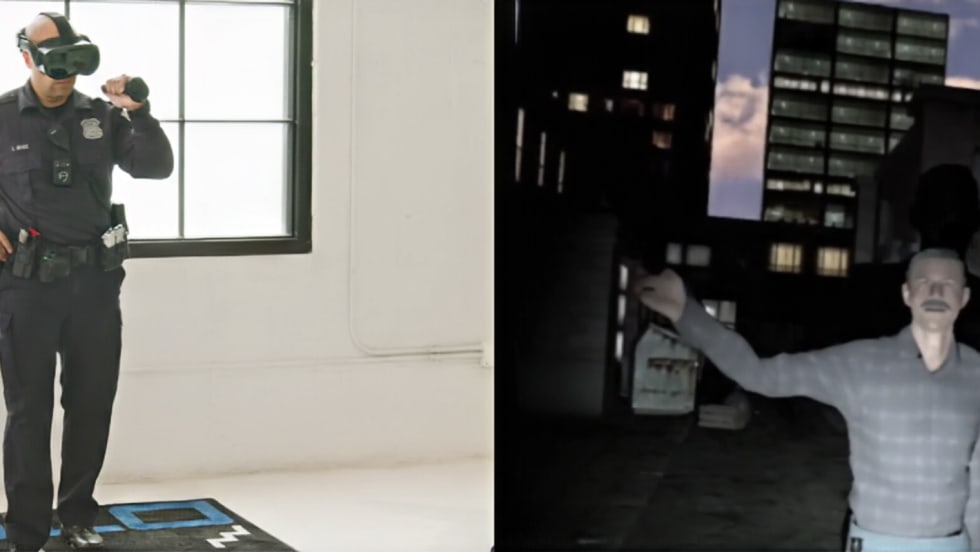Innovative educational programs are making it more practical for cops to pursue degrees.
Few things in this world are more difficult than working a full-time job and going to school in the serious pursuit of an education. And like most things, getting an education in your spare time is even more complicated for cops than it is for the average Joe or Jill Lunchpail.
However, the way working people pursue diplomas and credentials is changing with technology, as colleges and universities adopt new methods to make it easier for non-traditional students to earn degrees.
A cop or anyone else who is seeking a degree in contemporary America has two methods to achieve that goal. He or she can either attend classes physically at a school or online.
In Person
There are thousands of colleges and universities in the United States that offer both night and day classes. And many of them have seen a marked increase in criminal justice majors since 9/11. This means that if you want to attend CJ classes at a local school, you may have a lot of class times to choose from as the schools have added sessions to accommodate the demand.
But the boom in criminal justice programs is also a double-edged sword. Yes, there are more classes available, but competition for the best sessions is stiffer than it has ever been.
Online Education
It’s this competition for prime spots and the ability to schedule classes at all hours of the day that attracts some students to schools on the Web.
Online education programs are not the fly-by-night, unaccredited correspondence schools of yesteryear. When offered by serious, accredited institutes of higher learning, online education is just as effective as classroom sessions.
Such programs may raise skeptical eyebrows among conventional educators, but their advocates say the courses are just as challenging, if not more challenging than in-person classes.
“The Web-based instruction offered in our program is every bit as rigorous as the instruction in a traditional classroom,” says Gene Scaramella, head of the school of criminal justice at Davenport, Iowa-based Kaplan College.
“The great advantage of online classes is that we can offer so many sections,” Scaramella says. “We have classes online seven days a week, from early morning to late at night, and we can accommodate students in any time zone across the United States and around the world,” he adds.
Putting It All Together
One of the problems faced by law enforcement officers when they seek a degree is that they often have a variety of hours from numerous schools. But they don’t have enough hours from any one school to earn a degree conferred by that school. Some schools are now beginning to confer degrees based on an accumulation of total hours from numerous sources.
The largest of these programs is offered by Albany, N.Y.-based Excelsior College. Excelsior is an unusual school filling a growing need. The college has no classrooms or online programs. Instead, its professors advise working students on how to piece together enough hours from diverse institutions to earn an Excelsior College degree. In addition, Excelsior assesses law enforcement training programs to determine if they qualify for academic credit.
“We don’t have a residency requirement,” explains Meredyth Leahy, dean of the school of liberal arts at Excelsior College. “So students come to us because no one else will put together their hours from a number of schools and confer a degree.”
[SIDEBAR]
Cop Schools
The following is a quick look at some schools that offer online and on-campus educational programs for law enforcement officers.
ASIS International
One of the nation’s leading security training organizations, ASIS International offers certificate programs for law enforcement officers. Click here to visit ASIS International online. www.asisonline.org
Bellevue University
Established in 1966, Bellevue has some 4,000 on-campus students as well as popular online classes, including criminal justice programs. Click here to visit Bellevue University online. www.bellevue.edu
Boston University
One of the largest private universities in the country, BU offers an online master’s degree in criminal justice. Click here to visit Boston University online. www.cjdegree.info/pmag/
Excelsior College
Albany, N.Y.-based Excelsior confers numerous degrees, including a bachelor’s in criminal justice, but does not conduct classes. The school is designed to help non-traditional students combine credit hours from other institutions and even on-the-job training into a college degree. Click here to visit Excelsior College online. www.excelsior.edu
Houston Community College
With five campuses in southeastern Texas, Houston Community College serves thousands of students with programs that include criminal justice classes and a certificate course in homeland security. Click here to visit Houston Community College online. http://www.hccs.cc.tx.us
Kaplan College
Both a brick-and-mortar school with a campus in Davenport, Iowa, and an online institution, Kaplan offers a criminal justice degree program with specialized training in forensics and homeland security. Click here to visit Kaplan College online. www.kaplancollege.edu
Nova Southeastern University
Fort Lauderdale, Fla.-based Nova Southeastern University confers both undergraduate and graduate degrees, including a master’s degree in criminal justice. Click here to visit Nova Southeastern University online. www.cji.nova.edu
Roosevelt University
In addition to its campuses in Chicago and Shaumberg, Ill., Roosevelt University offers undergraduate and graduate programs online. Click here to visit Roosevelt University online. www.roosevelt.edu
St. Joseph’s College of Maine
St. Joseph’s College conducts classes at its southern Maine campus and via distance learning programs online. The college confers undergraduate degrees in many majors, including criminal justice. Click here to visit St. Joseph’s College of Maine online. www.sjcme.edu
Utah System of Higher Education
The Utah System of Higher Education comprises numerous public universities and colleges across the state. Each school offers an extensive variety of educational opportunities. Click here to visit Utah System of Higher Education online. www.utahsbr.edu











